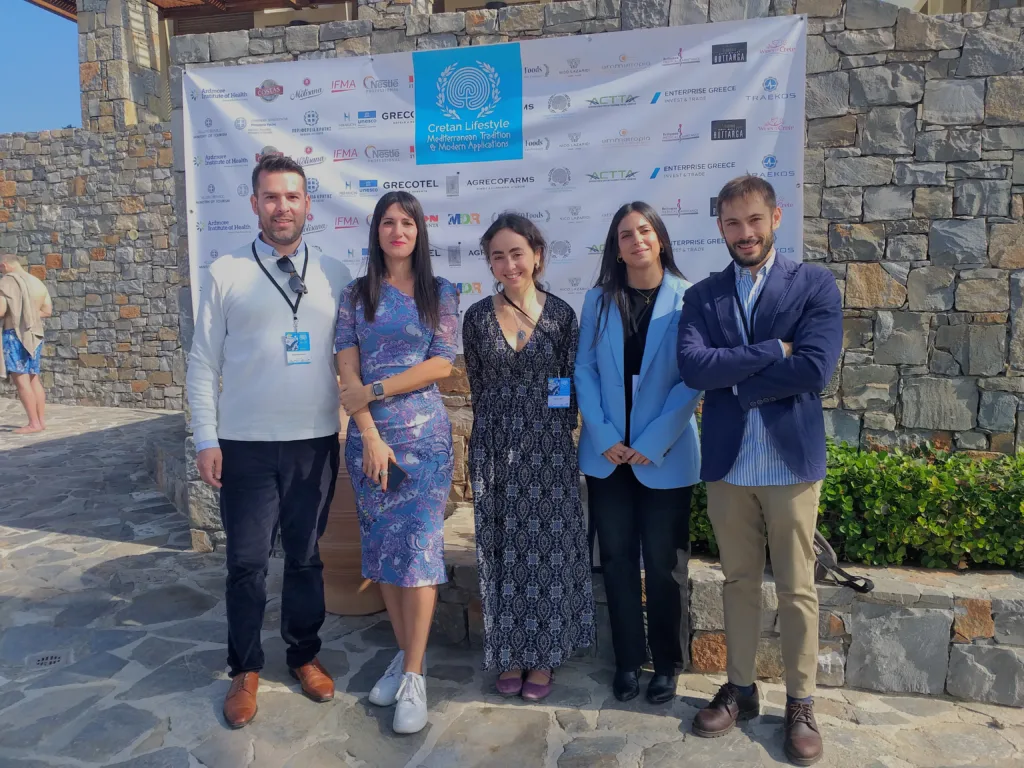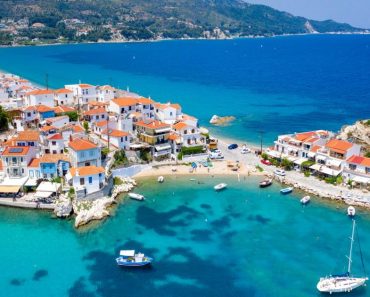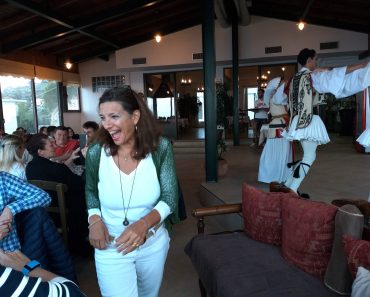By Lisa Radinovsky from Greek Liquid Gold.
Young scientists who work with the Mediterranean diet will inherit global challenges involving health, nutrition, and sustainability. For this reason, young students, researchers, and innovators were invited to join world-class scientists at the third Cretan Lifestyle Conference. Several generations came to Crete to discuss recent findings and innovations.
A young professionals’ / investigators’ competition, scholarships for students, and an agrifood startup company contest enabled individuals as young as 20 to learn from and converse with experts of all ages from 12 countries at Grecotel’s Amirandes Resort near Heraklion. The young people contributed a fresh perspective, innovative ideas, and hope for a vibrant future. At the same time, they learned from experienced scientists and their cutting-edge research on the Mediterranean diet and lifestyle.
Third Annual Young Investigators’ Competition Promotes Research on the Mediterranean Diet
The Cretan Lifestyle Conference’s third competition for young scientists attracted 25 abstracts from eight countries. Co-authors of the top five papers had the opportunity to give brief oral presentations to the conference audience, while other youthful researchers displayed 23 posters in the conference room.
Competition winner Maria del Carmen Aznar de la Riera compared the impact of the much-studied Mediterranean Diet to that of the similar but less known plant-based Planetary Health Diet. This PhD student from the Autonomous University of Madrid considered the diets’ effect on mortality, health, and environmental impact in Spain. De la Riera concluded that these diets lower all cause mortality in a very similar way, with similar effects on the environment, at least in Spain.
The Planetary Health Diet embraces many of the nutrients and advantages of a Med diet while varying to fit local culinary traditions. De la Riera emphasized the importance of keeping in mind “each population’s customs, necessities, and culturally rooted dietary patterns, as they may already benefit both human and environmental health.”
Second place winner Juan Luis Romero Cabrera from the University of Cordoba in Spain considered the role of rest in the Mediterranean lifestyle for coronary heart disease patients from the CORDIOPREV study. He reported that 6 to 8 hours of sleep at night, and a short or regular siesta, are best for reducing the risk of major adverse cardiovascular events for these patients.

Young Scientists Report on Positive Outcomes from Healthy Diets and Lifestyles
Third place winner Leyre Notario Barandiaran, a postdoctoral researcher at Dartmouth School of Medicine, evaluated the association between adherence to the Mediterranean diet and maternal and infant birth outcomes. She found that greater adherence to the Med diet was associated with a positive outcome for gestational weight gain and gestational age.
Harvard postdoctoral fellow Irene Lidoriki discussed the effect of a new healthy lifestyle smartphone application called Surviving & Thriving. Preliminary results from a small pilot study suggested a positive impact on healthy lifestyle scores, physical fitness, and mental health among new U.S. firefighters.
David Eduardo Murcia-Lesmes from the University of Barcelona examined the nutritional benefits of the Planetary Health Diet on cardiometabolic risk biomarkers among adolescents. He said the benefits were impressive enough that this diet can be “a big nutritional treasure for lower disease risk.”
Scholarships Enable Students from Crete and Abroad to Explore the Mediterranean Diet
Six scholarships for students in North America and Europe were provided by Ardmore and Traekos, while ten scholarships enabled students in Crete to attend the third Cretan Lifestyle Conference.
Aphrodite Zanni, a dietitian and postgraduate student at the Hellenic Mediterranean University in Crete, was grateful that she and four undergraduate dietetics students from the Department of Nutrition and Dietetics in Sitia, Crete had “the opportunity to enjoy this unique experience” with “so many scientists from different parts of the world.”
Zanni’s “favorite part of the conference was the opportunity we had to interact with the wonderful people and scientists who attended, regardless of age, as equals.” She valued the chance “to chat, exchange knowledge, opinions and experiences, and learn from each other.”
According to Zanni, the other Greek students agreed that “connecting with people from all over the world who shared a common interest in the Mediterranean diet, health and science was invaluable.” They appreciated “the exploration of the traditional way of life of Crete” in the context of “the science of nutrition, healthy lifestyle, gastronomy, and hospitality.”
Plans to Broaden Youth Participation Next Year
The winner of the Lifetime Award in Philanthropy at the third Cretan Lifestyle Conference suggested that even more youths should be invited to the next conference.
His Beatitude Theodoros II, Pope and Patriarch of Alexandria and All Africa, was born in Crete and has been working in Africa since the 1990s. At his urging, the Hellenic Center of Excellence will aim to offer scholarships to enable young scientists from Africa to attend next year’s conference alongside local university students, other young entrepreneurs and investigators, and experienced experts.
*Originally published on Greek Liquid Gold: Authentic Extra Virgin Olive Oil (greekliquidgold.com). See that site for recipes with olive oil, photos from Greece, agrotourism and food tourism suggestions, and olive oil news and information.






